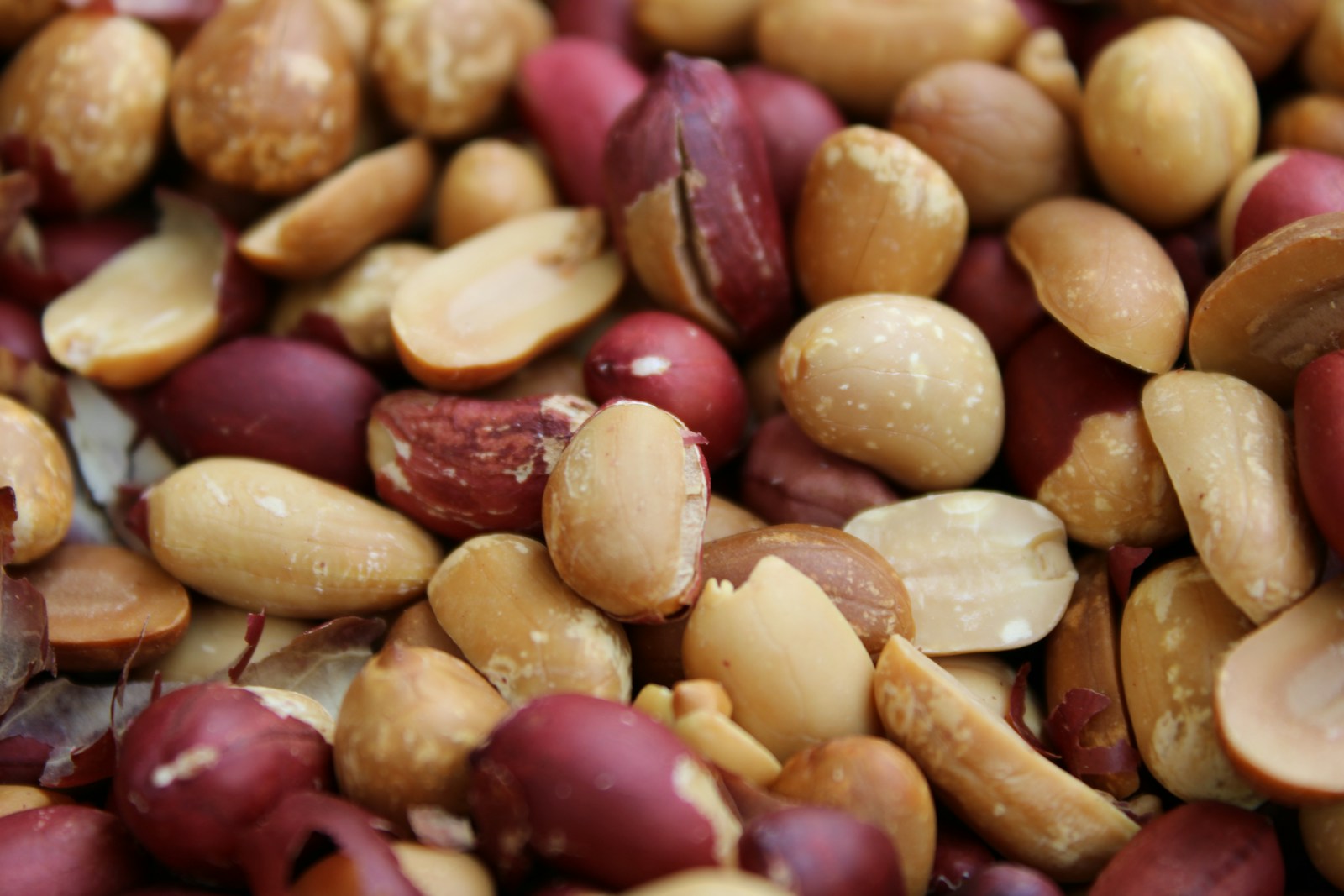Peanuts are a popular and nutritious snack enjoyed worldwide. Despite being commonly referred to as nuts, peanuts are actually legumes, and they offer a range of health benefits. Here’s a detailed look at the health benefits of eating peanuts:
1. Rich in Nutrients
- Protein: Peanuts are an excellent source of plant-based protein, making them a valuable addition to vegetarian and vegan diets.
- Healthy Fats: They contain heart-healthy monounsaturated and polyunsaturated fats, which can help lower bad cholesterol levels.
- Vitamins and Minerals: Peanuts are packed with essential vitamins and minerals, including Vitamin E, B-vitamins (especially niacin and folate), magnesium, phosphorus, and potassium.
2. Heart Health
- Lower Cholesterol: The healthy fats in peanuts help reduce LDL (bad) cholesterol levels while maintaining or increasing HDL (good) cholesterol.
- Reduced Risk of Heart Disease: Regular consumption of peanuts has been associated with a lower risk of heart disease due to their ability to improve cholesterol levels and reduce inflammation.
- Rich in Arginine: Peanuts contain arginine, an amino acid that helps relax blood vessels and improve circulation, contributing to better heart health.
3. Antioxidant Properties
- Resveratrol: Peanuts contain resveratrol, an antioxidant also found in red wine, which is known for its potential to reduce the risk of heart disease and cancer.
- Vitamin E: As a powerful antioxidant, Vitamin E in peanuts helps protect cells from oxidative stress and damage caused by free radicals.
- Polyphenols: Peanuts are rich in polyphenols, compounds that have antioxidant properties and help reduce inflammation and oxidative stress in the body.
4. Weight Management
- Satiety: The combination of protein, fiber, and healthy fats in peanuts can help increase feelings of fullness and reduce overall calorie intake, aiding in weight management.
- Metabolism Boost: Peanuts may help boost metabolism due to their high protein content, which requires more energy to digest than carbohydrates or fats.
5. Blood Sugar Control
- Low Glycemic Index: Peanuts have a low glycemic index, meaning they cause a gradual rise in blood sugar levels, making them a good snack option for people with diabetes or those looking to manage blood sugar levels.
- Improved Insulin Sensitivity: The healthy fats and fiber in peanuts can improve insulin sensitivity, helping to regulate blood sugar levels.
6. Brain Health
- Niacin and Folate: Peanuts are a good source of niacin (Vitamin B3) and folate (Vitamin B9), both of which are important for brain function and may help protect against cognitive decline.
- Resveratrol: The resveratrol in peanuts has been linked to improved brain health and a lower risk of neurodegenerative diseases like Alzheimer’s.
7. Digestive Health
- Fiber Content: Peanuts are a good source of dietary fiber, which supports healthy digestion, prevents constipation, and promotes regular bowel movements.
- Gut Health: The fiber in peanuts also acts as a prebiotic, feeding the beneficial bacteria in the gut and promoting a healthy gut microbiome.
8. Cancer Prevention
- Phytosterols: Peanuts contain phytosterols, compounds that may help protect against cancer by inhibiting tumor growth.
- Antioxidants: The antioxidants in peanuts, such as resveratrol and Vitamin E, help protect cells from DNA damage that can lead to cancer.
9. Bone Health
- Magnesium and Phosphorus: Peanuts are rich in magnesium and phosphorus, both of which are essential for maintaining strong and healthy bones.
- Calcium Absorption: The nutrients in peanuts may help improve calcium absorption, contributing to better bone health.
10. Energy Boost
- Calorie-Dense: Peanuts are calorie-dense, making them a great energy-boosting snack for those needing quick and sustained energy.
- Protein and Fat Combination: The combination of protein and healthy fats in peanuts provides a steady release of energy, helping to keep you energized throughout the day.
Tips for Including Peanuts in Your Diet
- Snack Smart: Enjoy a handful of peanuts as a nutritious snack between meals.
- Peanut Butter: Spread natural peanut butter on whole-grain toast or add it to smoothies for a protein-packed treat.
- Salads and Stir-Fries: Add chopped peanuts to salads or stir-fries for extra crunch and flavor.
- Peanut Sauce: Use peanuts or peanut butter to make a savory sauce for dipping vegetables or drizzling over grilled meats.
Conclusion
Peanuts are more than just a tasty snack; they are a powerhouse of nutrients with numerous health benefits. From heart health to brain function, incorporating peanuts into your diet can contribute to overall well-being. However, it’s important to enjoy them in moderation, as they are calorie-dense, and to choose unsalted or lightly salted varieties to avoid excessive sodium intake.
















